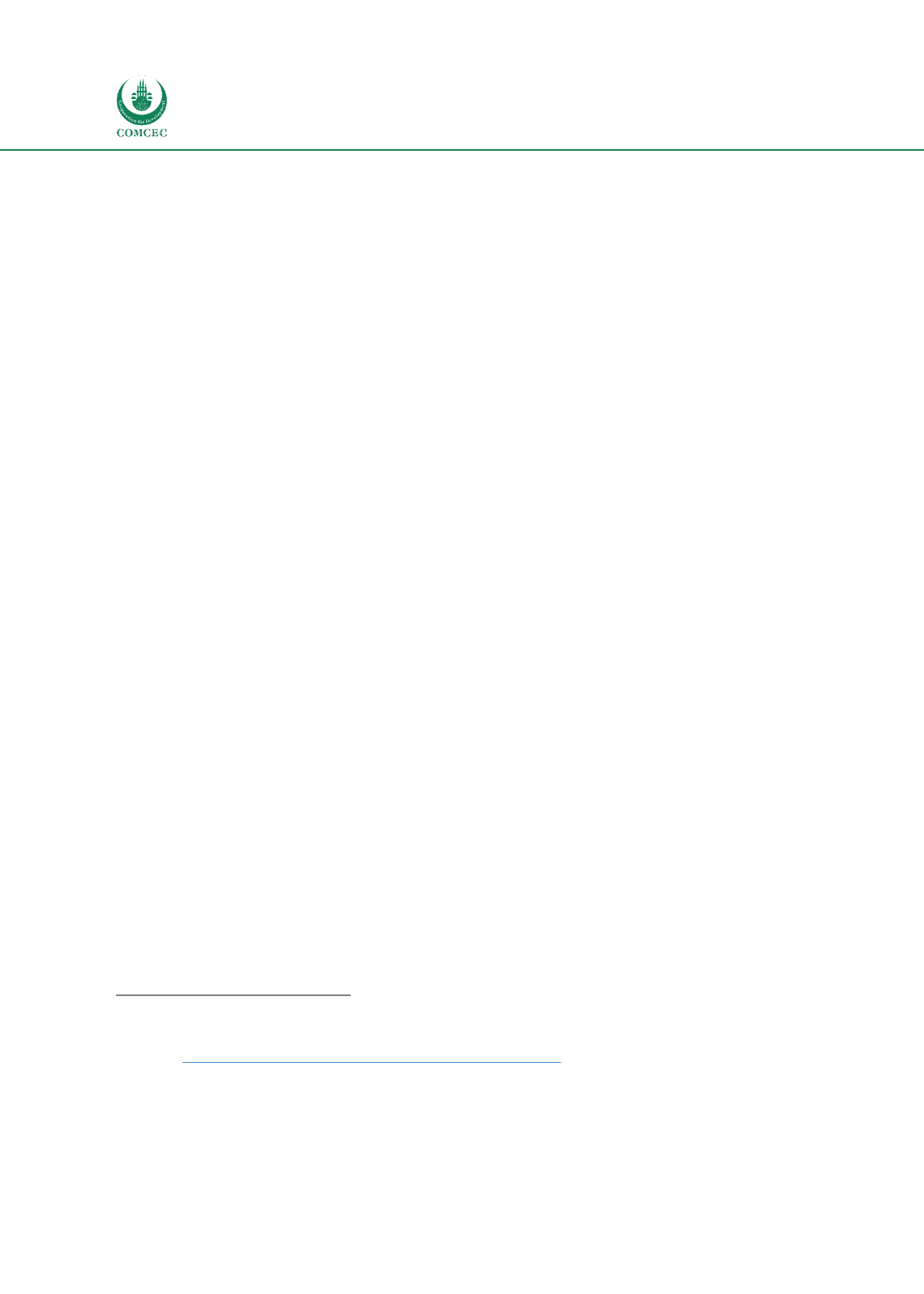

Improving Agricultural Market Performance
:
Creation and Development of Market Institutions
136
This key ambition of realizing food self-sufficiency obviously trickles down to policies and
activities of agricultural institutions and authorities. For instance, the Directorate of
Processing and Marketing of Estate Crops Products promotes sugar self-sufficiency by
providing sugar seeds to main production sectors.
387
The Government of Indonesia
collaborates with private sector enterprises and selects them through public procurement
procedures, after which the Government purchases sugar seeds from these enterprises. Sugar
seeds are then distributed to selected and targeted farmers free of charge. Three of BKPM’s
(Indonesian IPA) target sectors relate to agriculture: food estate, corn, and cattle. This reflects
the desire of the Government of Indonesia to achieve food self-sufficiency by improving the
domestic agri-processing and agri-business through attracting foreign investment.
388
Indonesia applies policy instruments to realize these self-sufficiency ambitions. These policy
instruments, particularly pricing mechanisms, are much debated as they seem to guarantee
domestic prices above world prices while at the same time these artificially high food prices
may actually “tax” the rural poor as main food consumers.
389
According to the WTO, Indonesia
continues to grant domestic agricultural support, export subsidies (e.g. processed palm oil
products and cocoa), special safeguards, and tariff quotas to protect its domestic agricultural
sector.
390
Examples of domestic support include input subsidies for irrigation schemes, water, tree
planting materials, and pesticides.
391
Fertilizer subsidies (e.g. gas for fertilizer producers and
direct fertilizer aid) have received the largest amount of subsidy budget. Input subsidies are
provided to lower production costs and increase the margin for farmers as opposed to
subsidize artificially high selling prices, as this would particularly punish poor consumers and
not contribute to food security.
392
Subsidized fertilizers and pesticides are manufactured and
distributed by PT Putuk Indonesia, a state-owned economic enterprise.
393
PT Putuk Indonesia
manufactures approximately nine million tonnes of subsidized fertilizers per year, which it
sells at below-market prices to smallholders registered with local agricultural departments.
Besides subsidized inputs, formal credits for agricultural producers are provided through the
state-owned Bank Rakyat Indonesia (BRI).
Quantitative import restrictions for a number of commodities (e.g. rice, sugar, salt, animals,
animal products, and horticultural products) in combination with specific import tariffs (e.g.
levied on rice, sugar, and raw materials for processed milk products) should protect the
domestic agricultural sector.
394
These import restrictions are set during annual Ministerial-
level coordination meetings and are implemented through the import licensing system. This is
complemented by strict import requirements with respect to sanitary and phytosanitary
practices, food safety, and cultural reasons (i.e. Halal). For instance, importers of processed
meat, cereal, sugar, cocoa, salt, animal, and animal products need to be registered with the
Ministry of Trade.
387
Interview conducted with Ministry of Agriculture in Jakarta, July 13, 2017
388
Interview conducted with BKPM in Jakarta, July 14, 2017
389
FAO (2003), “WTO Agreement on Agriculture: The Implementation Experience - Developing Country Case Studies,”
available a
t http://www.fao.org/docrep/005/y4632e/y4632e00.htm#Contents [Accessed June 2017].
390
WTO (2013),
Indonesia Trade Policy Review Report by the Secretariat
, Geneva: World Trade Organization.
391
OECD (2010), “Policies for Agricultural Development, Poverty Reduction and Food Security,” Paper presented to the
Working Party on Agricultural Policy and Markets, 15-17 November 2010, Paris: OECD.
392
Interview conducted with Indonesian Agency for Agricultural Research and Development in Jakarta, July 11, 2017
393
Interview conducted with PT Putuk Indonesia in Jakarta, July 12, 2017
394
WTO (2013),
Indonesia Trade Policy Review Report by the Secretariat
, Geneva: World Trade Organization.


















